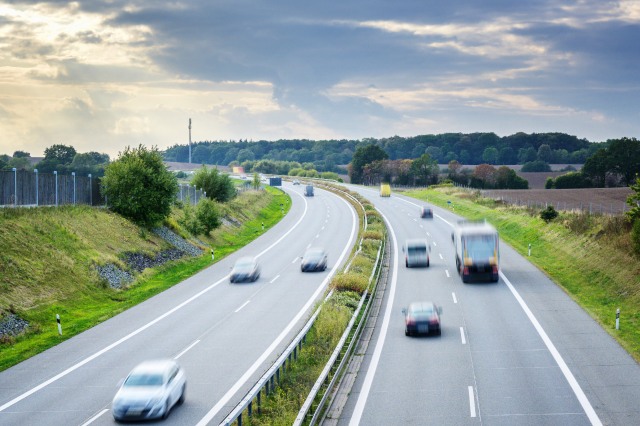How to: Take action with your energy usage
Australian Ethical is hard at work trying to increase ambition on the transition to net zero through our stewardship activities with companies and governments on your behalf. These are system level issues, and they won’t be solved overnight. While we use your money for good, here are some ideas for how you can take action in other areas, so we can collectively create change.
When it comes to addressing Greenhouse Gas emissions which are warming the planet, how much and when we use energy, and the type of energy we’re paying for can make a difference. By the end of this article, you’ll understand why our energy consumption matters, and how you can personally take action.
So what's the problem?
Electricity from the grid used in our homes and businesses contributes the most to emissions, both in Australia and globally. While more and more energy from renewable sources is being introduced into the mix, most grid electricity we use today is still powered by high-emission sources like coal and gas1.
Australia, along with 195 other countries, have a commitment under the Paris Agreement to limit warming to 1.5 degrees and well below 2 degrees Celsius, in order to avoid catastrophic warming. We know we’ll need to transition our electricity to renewable energy to reduce warming to this extent. The Department of Climate Change, Clean Energy, the Environment and Water (DCCCEEW) has targeted 82% renewable electricity by 2030, but we are closer to 32% today2.
Aside from grid electricity, household contributions to carbon emissions are mostly reflected in the ‘stationary energy’ category, the second largest source of emissions by category – less than grid electricity, but more than transport3.
Research from Rewiring Australia gives a segmented breakdown of how our household emissions are generated and finds that more than 40% of our domestic use emissions come from everyday activities like turning on our lights, household vehicle use, and household gas combustion including for heating and cooking. This, combined with the relative ease of change, makes our everyday energy consumption low-hanging fruit.
Australian Ethical is using its position as an investor and an engaged shareholder to seek positive change on your behalf, to hold companies to account for their ethical performance, and to agitate for companies and governments to do better to reduce emissions based on science-based climate targets.

The transport sector saw an increase in emissions for the year to September 2023 as transport activity returned to its pre-covid levels.
Ways you can act
Consume energy during off-peak times
If you’re showering or running high-energy appliances when the sun is shining, renewable energy most likely has you covered. It’s when there’s less energy from the sun or the wind being pumped onto the grid that fossil fuel energy is needed to manage the demand. If you have the ability, consume energy in off-peak times, it’s better for the grid and better for emissions.
Consider a renewable energy provider
Third party sites like Greenpeace’s Green Electricity Guide can help you compare providers and consider purchasing 100% renewable energy that adds additional clean energy to the grid, rather than offsetting.
Get solar
Installing solar panels, while incurring an upfront cost, could have long-term financial savings – along with emissions savings as it costs less to produce electricity from solar than ever before4. Add a battery to the mix and you can store energy, selling it back to the grid.
Home upgrades are the decision of property owners, but ultimately the system needs to be changed to be fairer for renters. You can join Rewiring Australia and other organisations who are calling for policies that ensure landlords disclose energy bills on rental ads and for minimum standards to deliver savings electrification for renters, particularly for low-income households and access to finance options.
Reduce your everyday energy consumption
Getting off household gas for stoves, hot water and heating systems is a big step towards reducing your household emissions. If you’re renting, this may mean choosing a place with electric rather than gas appliances.
Reduce your energy use through more efficient appliances – the environment will thank you and so will your bank balance.
Review the way you move
The transport sector saw the highest increase in emissions (4.5%) for the year to September 2023 as transport activity returns to its pre-covid levels. The DCCCEEW mentioned the increasing popularity of Sports Utility Vehicles (SUVs) as one of the contributors to the rise in transport emissions.
Your car is possibly the most talked about candidate for electrification. The pace of adoption of electric cars has taken off – last year nearly 1 in 5 cars sold globally were in fact electric5.
Get informed and speak up
The Australian Government will submit its 2035 target (National Determined Contribution - NDC), the next interim target it needs to set under its commitment to the Paris agreement, and the sector plans to help our economy get to net zero, over the coming months. Stable, bipartisan policy is critical to the transition.
If you’d like to know more about this, the Climate change Authority will be hosting discussions and workshops on the net zero planning process you can register for here. By speaking to our local members, we can encourage them to ensure we have the right climate policy to limit warming.
Read part one in this series, How to: Take action with your finances, for more climate change actions. Otherwise, you can find out more about our vision to create a better world where money is a force for good.
1 https://www.dcceew.gov.au/sites/default/files/documents/nggi-quarterly-update-sept-2023.pdf
2 https://www.dcceew.gov.au/energy/strategies-and-frameworks/powering-australia
3 Quarterly Update of Australia’s National Greenhouse Gas Inventory: September 2023 (dcceew.gov.au)
4 https://about.bnef.com/blog/3q-2023-global-pv-market-outlook/
5 Trends in electric cars – Global EV Outlook 2024 – Analysis - IEA
Australian Ethical Investment Ltd (ABN 47 003 188 930; Australian Financial Services Licence No. 229949) is the Responsible Entity and Investment Manager of the Australian Ethical Managed Investment Funds. Interests in the Australian Ethical Retail Superannuation Fund (ABN 49 633 667 743; Fund Registration No. R1004731) are offered by Australian Ethical Investment Ltd by arrangement with its subsidiary and trustee of the Super Fund, Australian Ethical Superannuation Pty Ltd (ABN 43 079 259 733, RSE L0001441, AFSL 526 055).
The information is of a general nature and is not intended to provide you with financial advice or take into account your personal objectives, financial situation or needs. Before acting on the information, consider its appropriateness to your circumstances and read the Financial Services Guide, relevant product disclosure statement (PDS) and Target Market Determination (TMD) available on our website.
You may wish to seek financial advice from an authorised financial adviser before making an investment decision.
Past performance is not a reliable indicator of future performance.
Investing ethically and sustainably means that the investment universe will generally be more limited than non-ethical, non-sustainable portfolios in similar asset classes. This means that the portfolio(s) may not have exposure to specific assets which over or underperform over the investment cycle, and so the returns and volatility of the portfolio(s) may be higher or lower than non-ethical, non-sustainable portfolios over all investment time frames.



